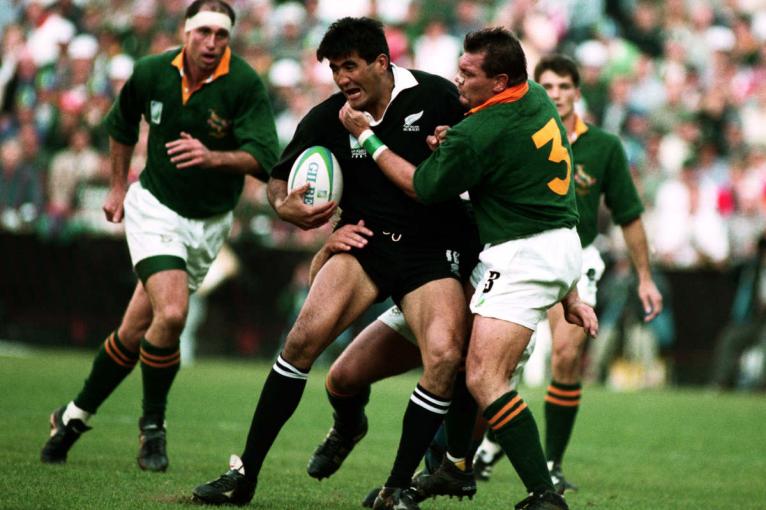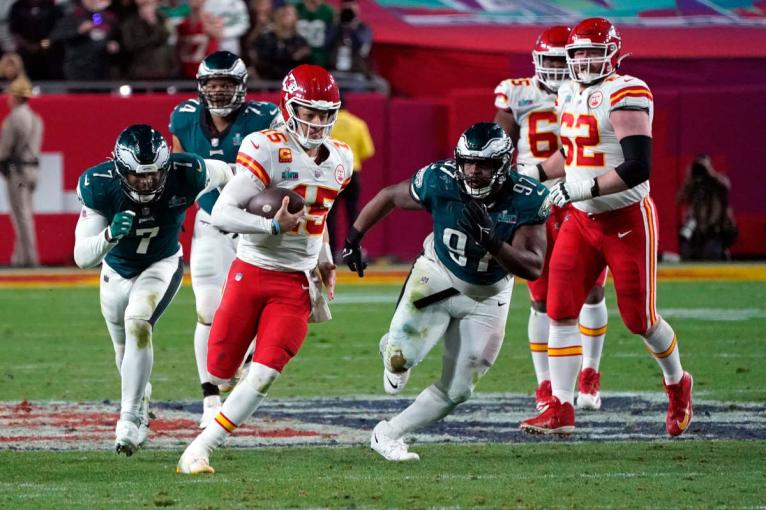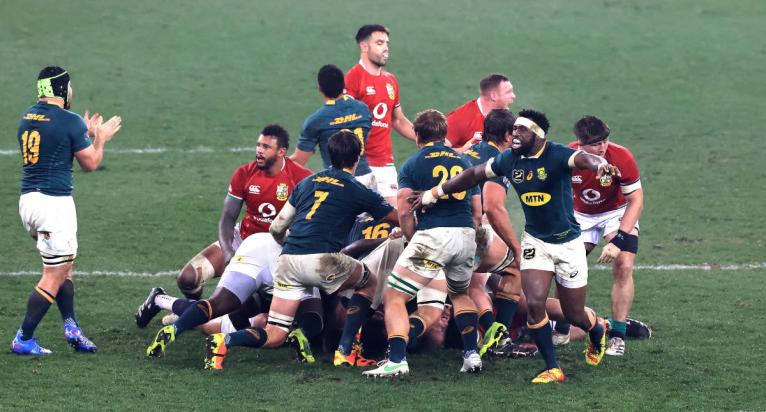You turn up, you pay your £30 for a ticket. How much rugby do you expect to watch? If you said 80 minutes, I have some disappointing news. In the Premiership last year, the average match had 38 minutes of ball in play time. That is, in the 80 minutes of the match, just 38 of those had rugby played. The other 42 minutes were spent waiting for lineouts to form, kicks at goal to happen, and teams to decide what they were going to do when awarded a penalty.
That might sound outrageous. Are we being short changed as fans? Certainly, the modern trend has been towards wanting more and more ball in play time. It’s understandable, the more ball in play, the better, surely? I don’t think it’s that simple. Ball in play matters, but it’s not a case of more making games better. Let’s look at why that is.
To begin, let’s put ball in play time into context. 38 minutes might not sound like a lot, but it’s a huge amount more than we had it in the past. The 1995 World Cup averaged just under 26 minutes of ball in play time. The 2019 World Cup had the most ever at 34 minutes. If current club trends continue into the international game, the 2023 World Cup should eclipse that by at least 10%.

In the eight years between 1995 and 2003, six minutes were added to the World Cup ball in play time. In the eight years after that just 14 seconds were added. The pace has quickened since then but it does look like rugby is nearing its ceiling, unless drastic changes are made. Those are drastic changes which frequently get aired. Why not stop the clock until the scrum is complete, or the ball is kicked, or the lineout is taken? Rugby could quite easily get to the 55 minutes of ball in play time that football enjoys if it did that. But, there are a number of reasons why rugby shouldn’t go down that route.
Take American Football. The ball in play there is outrageously low, just 11 minutes, however it is thriving. It’s thriving because the action per minute of ball in play is very high.
The first is practical. The Premiership final lasted 1 hour 58 minutes, 1 hour 43 minutes if you remove the half time break. Adding at least another 20 minutes by stopping the clock would turn long games into marathon tests of endurance for the fans at home and in the stadium. It also makes game lengths harder to predict. Currently games last roughly the same amount of time as one another, the ball in play time just changes. However, if the clock was to stop more frequently then matches in poor weather with plenty of scrum stoppages could take vastly longer than matches in good conditions. That makes it almost impossible to televise.
Fundamentally, there is a bigger issue with the constant hunt for more and more ball in play time; more isn’t always better. There are two factors that really matter; ball in play time and action per minute of ball in play. Take American Football. The ball in play there is outrageously low, just 11 minutes, however it is thriving. It’s thriving because the action per minute of ball in play is very high. Football is also thriving, and does have a lot of ball in play time, but few people admitted to enjoying watching Spain pass the ball back and forth under limited stress at the World Cup. Those games had a lot of ball in play but limited action.

That’s not to say that rugby can’t increase the ball in play time nor that they should avoid doing that. However, many of the options I see, stopping the clock at the scrum for example, are too drastic and risk causing a huge change in the way the game works. Instead, the focus should be on negating the stuff which, to use a technical term, veers into time-wasting. Kick clocks for penalties and conversions provides a clear limit for kickers and makes the job of the referee easy. Cutting down on teams wasting time walking to lineouts over and over again will also help as will forcing captains to make decisions quicker after they are awarded a penalty. This isn’t about adding on minutes of ball in play time but rather making the game flow better.
We can probably remember that second Lions test in South Africa in 2021. From start to finish that lasted 2hrs 11minutes. The final test was just under 2hrs 6minutes. There was consternation at how long these matches were taking.
Finally, the fact that ball in play time can be gamed makes it tactically vital. If you’ve played you will be familiar with the feeling of trying to up the pace of the game when you feel you have the other team on the ropes. Maybe taking quick taps or lineouts or forming up at the scrum particularly quickly. Perhaps you’re more familiar with the alternative feeling of trying to slow the game down as you catch your breath. The pace of the game, and how much rugby actually gets played, is something teams can control.
We can probably remember that second Lions test in South Africa in 2021. From start to finish that lasted 2hrs 11minutes. The final test was just under 2hrs 6minutes. There was consternation at how long these matches were taking, but this was a clear plan by the South Africans. They had a power game plan and their big players benefitted from a higher ratio of rest to work. Slowing the game down, through any method possible, was clearly to their advantage. That final test had just over 31 minutes of ball in play time. That helped the Boks elite starting trio of Steven Kitshoff, Bongi Mbonambi, and Frans Malherbe play for 61, 55, and 55 minutes respectively. In the first match which the Lions won, Ox Nche, Mbonambi, and Trevor Nyakane played for 40 minutes. That match featured more ball in play and a lower overall match time.

You might find these tactics which butt heads with the idea of sportsmanship distasteful. But plenty of teams use softer tactics every week. Not kicking to touch, or not kicking at all, is one of the ways that teams try and increase ball in play time. Exeter Chiefs have the highest average ball in play time in the Premiership and the second lowest kicks per game. Their game plan relies on possession and using that possession to slowly grind down the opposition. It didn’t work this season, but you can see how they try and turn that ambition into reality by manipulating ball in play time.
That nuance and those subplots will disappear if the hunt for more ball in play means that the clock is stopped more frequently. We might well end up in a place that we thought we wanted to visit but hated when we get there. 38 minutes might sound outrageously short, but it’s near enough perfect for modern rugby.


Not sure how SA slowing down the game is bad sportsmanship. In every top level sport you play to your strengths and target the opponent's weaknesses. If SA wants to fire up a bulldozer that slowly shunts other teams off the field then fair play to them. If other teams want to play faster then they should figure out how to impose that on the Boks.
As relates to ball in play time, it's not obvious that the relentless action in ice hockey is more attractive than the drama of the NFL chess game. 75% of Americans follow American Football, and only 20% follow Ice Hockey. Basketball and Baseball have widely differing ball in play times, and are both followed by about 55% of Americans.
Speeding up the game would be first priority for World Rugby. I do not fancy the kicking game by some teams. The ball in play will make the game efficient and enjoyable.